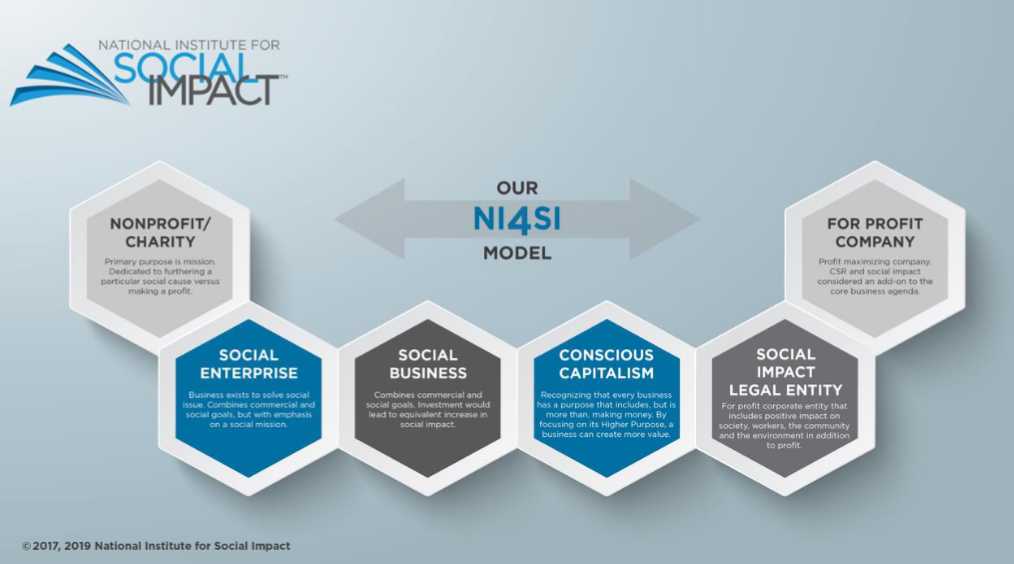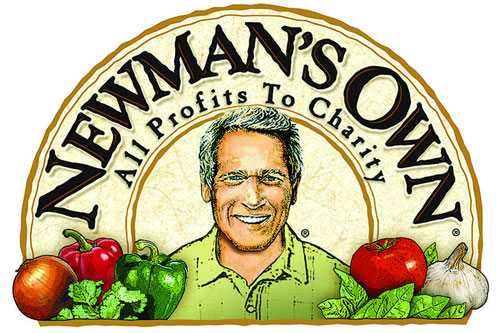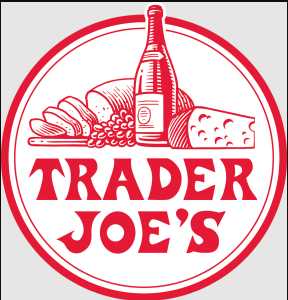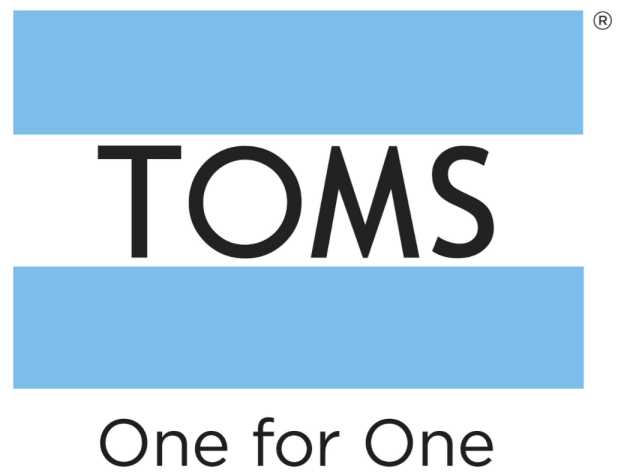Every month I teach a 2.5-hour part of an all-day workshop for first-time business owners. Before I do my presentation, Jonathan Liebert, CEO of the National Institute for Social Impact, headquartered in Colorado Springs, does his presentation on why many businesses should embrace social impact as part of their mission. He shares with participants how the world is changing at a rapid pace due to innovation, technology, and a new generation of consumers. In addition to price and quality, his research suggests that more and more consumers want to know where their products are sourced, how their purchase will impact their local economy, and how to best support businesses that are doing more to support their community. Jonathan and I collaborated in writing this post about why businesses today need to build social impact into the DNA of their business. We hope you enjoy it.
Why Social Impact is Important
Social impact has been making waves and changes in many parts of our lives. From the way we evaluate how a business conducts its operations to the products we choose to purchase, social impact is becoming increasingly important to many people, especially consumers. This is why many companies, organizations, and foundations are making a conscious effort toward achieving positive social impact.
Making a difference in the world is always important. No matter how small the effort is, social impact affects everyone in many ways we may not realize. Today, many companies find themselves in the crosshairs of an increasingly empowered consumer who is energized about social issues and expects their providers to be the same.
According to a survey by Survey Monkey, consumers ranked the following social impacts as very or extremely important:
- 73% pay equity and fair labor practices
- 71% protecting the environment
- 68% racial equity
- 64% gender equality
- 51% LGBTQ equity
While incorporating social impact into a company’s business model is generally associated with larger corporations, addressing social impact is also becoming a competitive advantage for many smaller businesses. Millennials (Gen Y) and Zoomers (Gen Z) consumers are particularly aware of the social foundation of the companies they shop with, and there are many examples of businesses that have gained traction by leveraging that awareness in their brand messaging.
“53% of consumers would pay more for a product that supports their social values.”
SurvayMonkey
Economy Sectors
Traditionally, there have been three sectors in our economy.
- Private – The private sector is the part of the economy run by individuals and companies for profit. Private sector businesses include all investor-owned for-profit businesses that are not owned or operated by the government.
- Public – The public sector is the part of the economy that comprises all organizations owned and operated by the government. Public sector enterprises include everything from schools and hospitals to roads and bridges. The primary purpose of the public sector is to provide services that are considered essential for the well-being of society.
- Plural – The plural sector, sometimes called the social sector, is an association of people that is neither public nor private and is neither owned by the state nor private investors. Some plural sector organizations are owned by their members, and others are owned by no one. Nonprofits, charities, and co-ops are part of the plural sector.
However, according to Heerad Sabeti, co-founder and CEO of the Fourth Sector Group, a fourth sector is emerging. The fourth sector comprises for-benefit businesses that integrate public purposes with business means. For-benefit businesses are harnessing entrepreneurial energy to shape more sustainable, inclusive, and resilient economies and reshaping the future of the capitalist system.
According to the National Institute for Social Impact (NI4SI), the fourth sector represents purpose-driven businesses that fall between the plural or social sector and the private for-profit sector and provide a social impact as part of this business model.
How the company is organized in terms of entity selection or tax status is not what defines a social impact business. A social impact business represents any business driven by a higher purpose in addition to earning a profit. This higher purpose can be social and/or environmental and must provide an economic impact that can be measured.
It should also be noted that while many for-profit companies, such as Johnson & Johnson, Google, Coca-Cola, and Ford, incorporate Corporate Social Responsibility (CSR) into their business models, CSR differs from businesses that integrate social impact directly into their business model. CSR resides in traditional for-profit companies and is just a step toward becoming an actual social impact business. CSR is more of a strategic initiative to prioritize profits, people, and the planet equally to improve its reputation and profitability in the long run. CSR is a strategy that businesses use to communicate all that a company does, such as donating to charities, to appeal to a broader range of stakeholders, investors, and consumers.
In contrast, social impact companies have their higher purpose built into the very heart of their business model. Providing a social impact is an essential part of the “DNA” of a company, while CSR represents an add-on or additional marketing opportunity to simply generate a higher profit for its shareholders.
The Purpose-Driven Fourth Sector Continuum
To further explain this new fourth purpose-driven sector, the folks at NI4SI have defined a continuum of social impact businesses.

Social Enterprise
A social enterprise is a mission-driven business that exists to solve a social issue. A social enterprise can be either a nonprofit or a for-profit organization that uses the powerful economic engine of capitalism to solve a social or environmental problem. A social enterprise directly impacts the issues that they seek to solve.

Bombas is an excellent example of a social enterprise. Randy Goldberg and David Heath, the founders of Bombas, learned that socks were the most requested clothing item in homeless shelters. To create a social impact, they established a brand to donate a pair of socks for every pair of socks sold. While Bombas is a for-profit business, its entire existence was to solve the clothing problems experienced by the homeless. Today, Bombas has added underwear, t-shirts, and slippers to their socks and continues the “One Purchased = One Donated” model.

Warby Parker, which donates one pair of glasses to someone in need for every pair purchased, is another good example of a social enterprise.
Social Business
A social business can be a for-profit or nonprofit that combines a social and commercial goal to accomplish its social impact. The subtle, yet significant, difference between this type of business and a social enterprise is that a social business generates revenue and raises awareness for a social issue, and donates all of its profits to the cause it supports.

Newman’s Own is an excellent example of a social business. Founded by actor Paul Newman and author A. E. Hotchner, the company was established as a for-profit business with the objective of donating 100% of its after-tax profits to the Newman’s Own Foundation to support children, their families, and their communities.
Conscious Capitalism
A conscious capitalist business is a for-profit organization that fully embodies the stakeholder model vs. the shareholder model. These businesses believe that by focusing on a higher purpose, they can create more value for communities, the environment, employees, and their supply chain, while still realizing profits for their shareholders.
Costco, Trader Joe’s, and Starbucks are three examples of Conscious Capitalism.

Costco treats its employees well, even as it offers customers competitively priced goods.

Trader Joe’s pays well, and employees cite a fun, progressive environment.

Starbucks is deeply committed to diversity and inclusion in its workforce.
By giving their business a “why” that goes beyond making a profit, conscious capitalist companies place a significant emphasis on culture and leadership to drive the purpose of their business which, in turn, generates profits.
Legal Entities and Certification
This final element of the continuum represents the legal entities and certifications for the fourth sector of social impact businesses.
Legal Entities
There are a growing number of ways to register a business, such as a Public Benefit Corporation (PBC), Low-Profit Limited Liability Company (L3C), or another similar designation that varies by state or country.
What differentiates a PBC or a L3C from a C-corp, S-corp, or LLC is that the founding documents include one or more specific public benefits as their statement of purpose, as opposed to the typical boilerplate “any lawful purpose” usually contained in most for-profit charters. Statement of purpose embeds the PBC or L3C’s mission into its founding documents and provides a North Star by which the company will navigate critical business decisions. Moreover, by making such public disclosure of its purpose, shareholders understand that the responsibility of the business is not solely to maximize shareholder value. Board members of PBC and L3C businesses must consider the best interests of those materially affected by the company’s conduct and the specific public benefit outlined in the company’s charter.
We are witnessing the first-generation models for these types of legal entities, and we believe we will see more forms of legal structures as well as certifications and accreditations in the coming years.
Certifications and Accreditations
While a PBC and L3C are specific legal entities, a certified B Corp is not a legal entity but a certification. Any for-profit entity can be B Corp certified as long as it is certified by B Lab, a non-profit organization founded in 2006, and the company pays the applicable membership fee.
B Corp certifications go beyond a company’s product attributes and look at its entire business model and operations. As a certified B Corp, companies have demonstrated that they meet the highest standards of verified social and environmental performance, public transparency, and legal accountability to balance profit and purpose.

Patagonia is an excellent example of a certified B Corp company. Patagonia’s mission is to build the best product, do no unnecessary harm and use the business to inspire and implement solutions to the environmental crisis. As a result, Patagonia has dedicated 1 percent of sales each year to environmental causes.

TOMS is another example of a certified B Corp as it donates 1/3 of its profits to grassroots efforts, including cash grants and partnerships with community organizations, to drive sustainable change.
Companies that organize as a PBC or LC3, or obtain B Corp certification, clearly articulate their values and commitment to furthering the public good through sustainable business practices, environmental stewardship, community leadership, and good governance.
How can you include social impact in your business?











